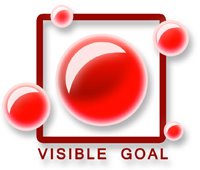Op mijn twitter account heb ik al die maanden een saved search lopen voor “Google Wave” en dat heeft me veel informatie opgeleverd.
Hoewel de hoog gespannen verwachtingen worden ingelost, ontstond er ook wel wat reserve: “waren de ambities van Google niet te groot? Was het tijdpad voor de uitrol niet te strak gepland? Konden alle verwachtingen wel worden waargemaakt?
Vanzelfsprekend is Google gefocussed op de techniek, maar mijn focus is volledig gericht op de manier waarop de gebruikers om zullen gaan met de mogelijkheden van de Wave. In een van de berichten schreef een totaal gedesillusioneerde gebruiker, dat hij in totale wanhoop had zitten kijken naar 10 mensen die tegelijk in zijn wave aan het ‘kakelen’ waren. Het was chat op z’n slechts, een nachtmerrie! Hij hield het verder bij het vertrouwde lineare mailen.
Op NS Innovation kwam ik een zeer interessant artikel tegen:
The psychology of Google Wave Google's latest service is a complex "real-time communication and collaboration" system.
In dit artikel worden Leon Watts en Susan Herring geciteerd. Vanuit hun vakgebied doen zij een poging om de impact van Google Wave te benoemen op de manier waarop mensen kunnen gaan communiceren.
Wave's potential is still hard to assess. The problem is that most talk about it is focussed on technology, not peopleMbt de menselijke factor zeggen zij
We need to ask what opportunity Wave allows people to express themselves and to understand what other people mean when they contribute a message to a conversation," explains psychologist Leon Watts, who researches communication via computer at the University of Bath, UK.In het artikel wordt veel aandacht besteed aan de impact van ‘Real time typing and the replay function’
Past research has shown that the real-time, synchronous, nature of instant messaging (IM) encourages an informal tone, says Susan Herring, who researches the convergence of computer communication platforms at Indiana University in Bloomington. "It invokes face-to-face communication and encourages people to use conversational strategies,"
when the other person is online you will be drawn to a more informal style."
Replays may also improve our ability to know the intentions of others – a capacity called theory of mind that is central to the way we communicate. Different communication methods provide different types of evidence that is used to create such models. Because Wave provides multiple ways to transmit that evidence, it may make it easier to model others' minds. "Watching a Wave replay could help people to imagine what was in the minds of others," says Watts.
"The designers have some control, but will also have to wait to see what usage patterns develop and respond to that" says Herring. Watts agrees: "It's people and organisations that will ultimately determine how Wave is used."
Mijn avond was fantastisch! Ik heb heerlijk gespeeld in een prachtige nieuwe wereld! Ik ben benieuwd wat die wereld met mij gaat doen. Daarbij ben ik vooral benieuwd wat die wereld met mijn onderwijs gaat doen… Ik kan bijna niet wachten tot het morgen is.


Geen opmerkingen:
Een reactie posten